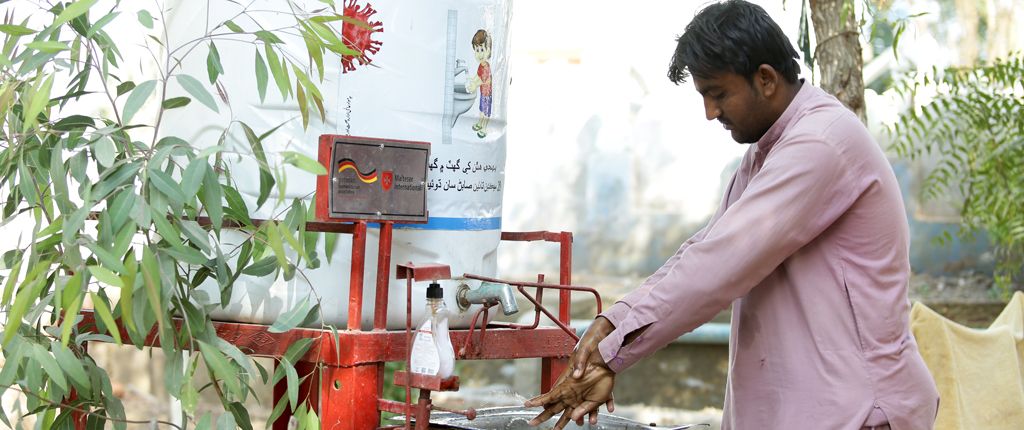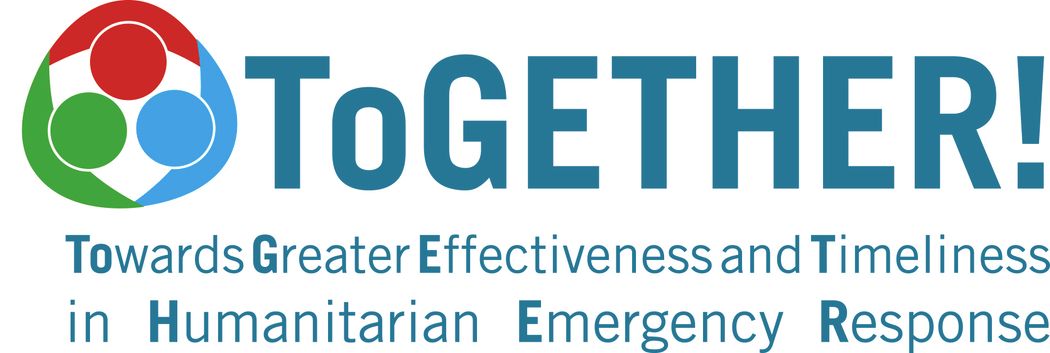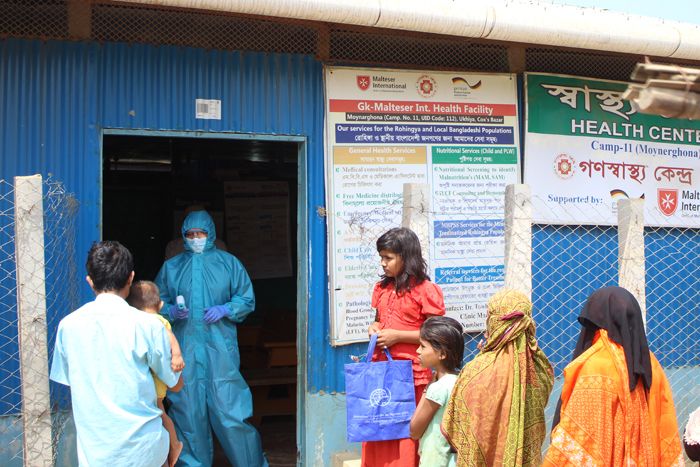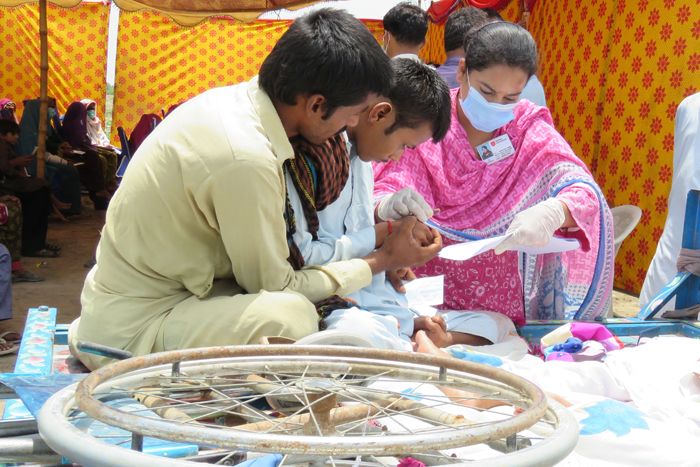
COVID-19 crisis as a catalyst for localization of humanitarian aid
In the pandemic, it is the local actors in particular that keep up the work for people in need. A look at the Asia region shows how the system of humanitarian aid is changing around the world.
When the coronavirus outbreak was declared a pandemic, many governments acted quickly: “Most of our project countries were able to avoid the collapse of their healthcare systems, which were not very strongly positioned in the first place, by implementing a strict lockdown,“ Cordula Wasser, Head of the Regional Group Asia at Malteser International, reports. It is the economic catastrophe in the wake of the pandemic that hits those particularly hard who barely have enough to live on anyways. “By no means did we want to leave the affected population in our project regions to their own devices in this situation,“ Wasser says. While many organizations had to suspend their programs due to regional lockdowns, Malteser International’s work could be continued – thanks to strong local structures and national partner organizations.
Establishing local capacities early on secures aid during the pandemic
We have been committed to strengthening local actors – not only since the localization of humanitarian aid was declared one of the key future topics at the first World Humanitarian Summit in Istanbul in 2016. Together with Welthungerhilfe, Caritas International and the Diakonie Katastrophenhilfe, we support eight countries and 40 local partner organizations in establishing capacities in the areas of emergency relief, crisis prevention, coordination and funding of their work as well as representing their interests in a joint localization program sponsored by the German Federal Foreign Office (ToGETHER!). It is the program’s aim to put the localization of humanitarian aid into practice in the participating countries – for Malteser International these are Myanmar and Bangladesh.

The COVID-19 crisis has accelerated this already ongoing global development like a catalyst. In the aftermath of great catastrophes, it is the national organizations that can first provide relief on site, and they have also played an important role during the pandemic. In many regions, international experts and non-governmental organizations could no longer travel and operate during the local lockdowns. Local actors stayed in touch with the affected population and in some cases established contact in the first place.
Local partner organization continues work in Bangladesh

One of the hotspots in the region are the refugee camps in Ukiya and Teknaf in the Cox’s Bazar district of Bangladesh. More than 890,000 people belonging to the Muslim Rohingya minority have been living here in cramped conditions since fleeing Myanmar in the summer of 2017. Often, up to twelve people share one accommodation, there is a lack of clean drinking water, sanitary conditions are precarious – a rather ideal breeding ground for the spread of the coronavirus. In mid-May 2020, first cases were reported in the refugee camps.
Through our local partner organization, Gonoshastaya Kendra (GK), we were not only able to continue our work during the lockdown but to expand it greatly with measures to prevent COVID-19. “Due to a lack of laboratories, testing capacities are extremely limited, thus preventive measures are all the more important. Therefore, we equipped health facilities with medication, protective equipment, disinfectants, and other materials, set up hand-washing stations and isolation wards, trained healthcare personnel and implemented a number of educational measures,“ Nasima Yasmin, head of GK, reports. Until now, mass outbreaks could be prevented; according to UNHCR, a total of 366 cases in the camps had been confirmed by the end of December, ten refugees died.
Strong programs thanks to strong local structures

We continue to localize aid within our own organization as well: wherever possible, job vacancies are filled with national applicants and decision-making processes are moved to the respective location.
Just like in Bangladesh, we were able to continue the work on our programs in Myanmar and Pakistan during the lockdowns thanks to strong local organizational structures. Our education campaigns on proper hygiene during the pandemic and the installation of communal hand-washing stations, for example, reached about 12,000 people in the villages of the Sanghar region of Pakistan. In Myanmar, more than 62,500 people benefited from the campaigns.
Having people from within the communities do the educational work further increases the acceptance of the measures. Moreover, they are often closer to the population’s needs, know the context and the language best and are thus better equipped to encourage people to help each other and develop their own solutions. This is particularly important for population groups that are already in need of assistance, like for example people with disabilities. In Pakistan, many families have lost their livelihood due to the nationwide lockdown. “By distributing cash and food, especially for families with a disabled family member, we were able to help them bridge the worst of times,“ Fayyaz Shah, country coordinator in Pakistan at Malteser International, says.
Real participation for real help
In our project countries, the economic effects of the coronavirus pandemic will be felt for many years to come. In some regions, economic development has been set back by decades. “Only strong partnerships can work out sustainable long-term solutions for the people. Local actors play a central part in this. They rightly demand equal participation, a fair share of institutional funding and long-term financing,“ Cordula Wasser says. We are still a long way from equal partnerships on eye-level between international and local aid organizations, particularly due to the fact that long-term funding opportunities are hardly available, however: „Humanitarian aid is changing, there is no way back.“
7 dimensions of localization promoted by Malteser International’s projects:
1. Quality of the relationship: respectful and equal partnership
2. Participation: increased participation of the affected population
3. Funding: better financing quality for local actors, like flexibility or duration as well as more direct funding
4. Capacities: more support for sustainable institutional capacities of local actors
5. Coordinating mechanisms: more presence and influence of local non-governmental organizations
6. Visibility: visibility of roles, contributions, and achievements of local non-governmental organizations
7. Rules and regulations: involvement of local actors in discussions about international standards and guidelines
Source: VENRO (developed by GMI: Global Mentoring Initiative)








